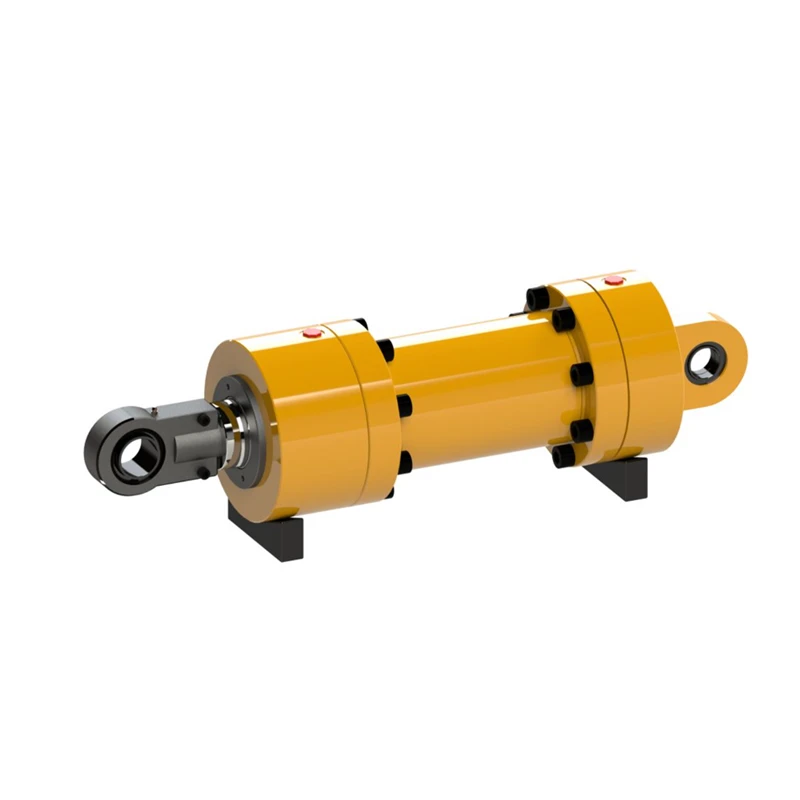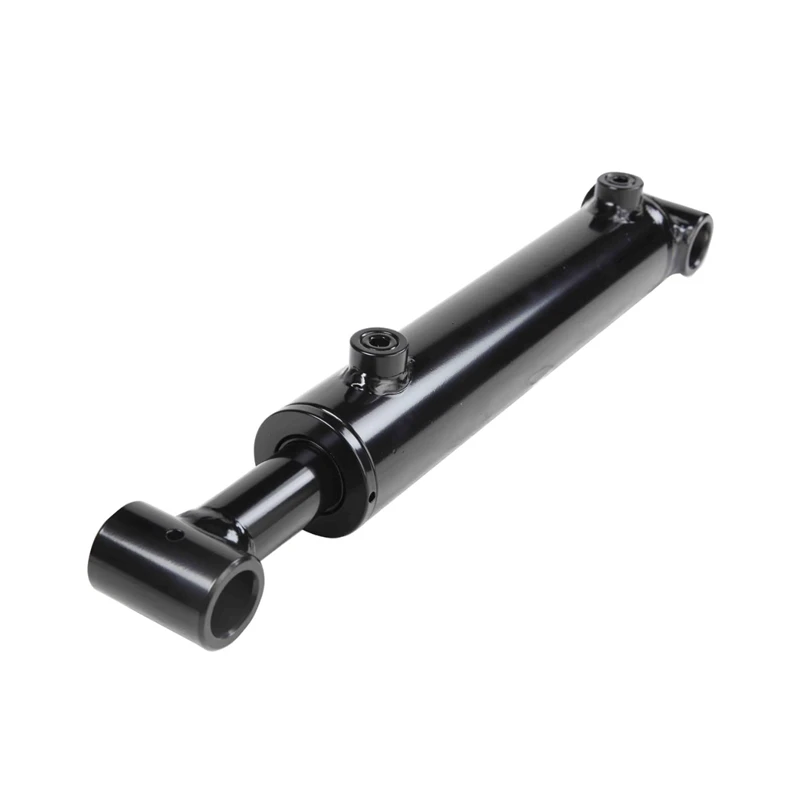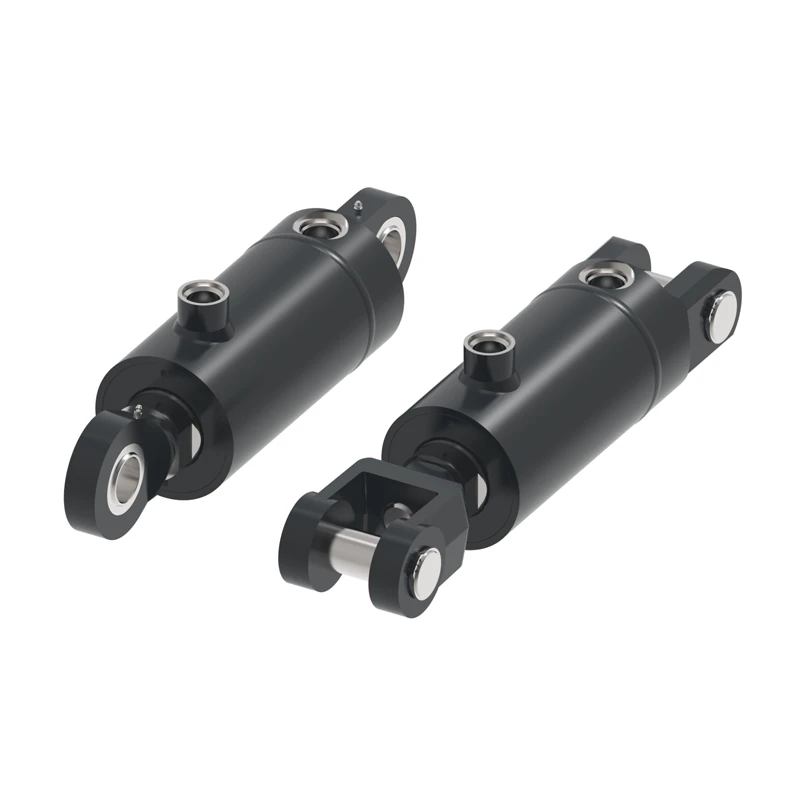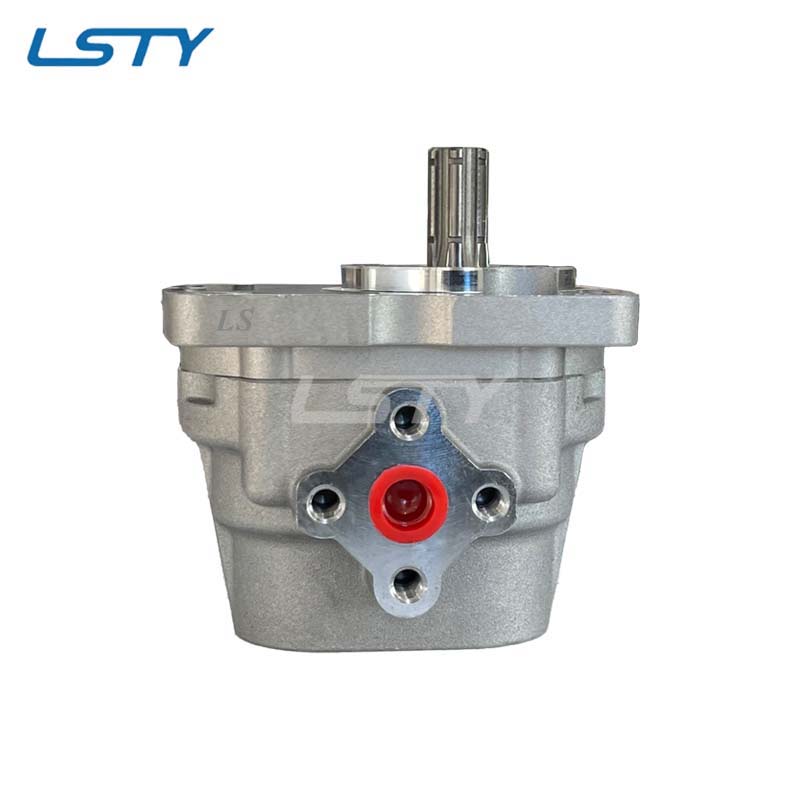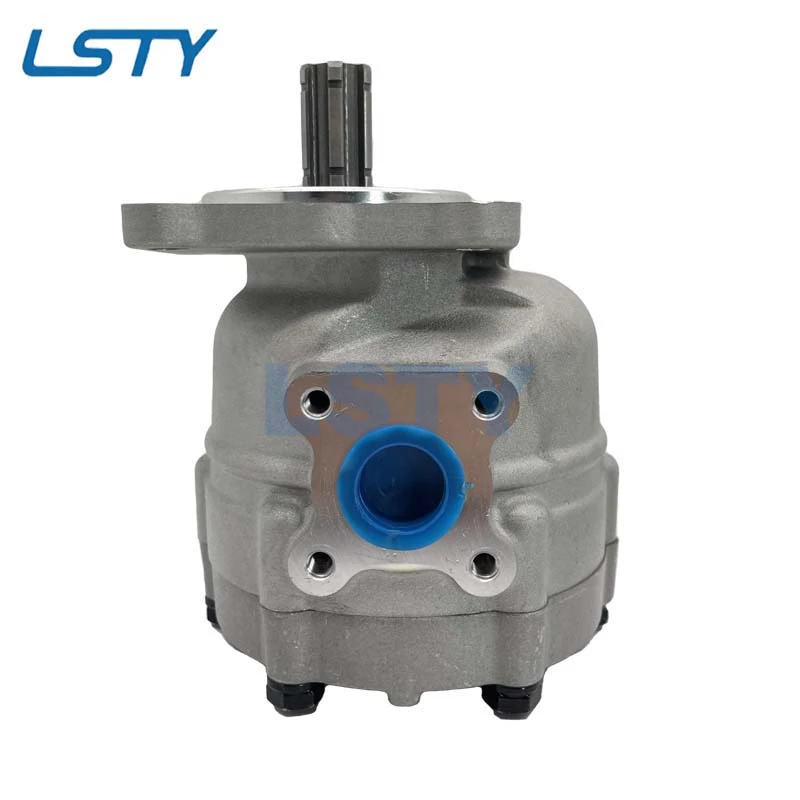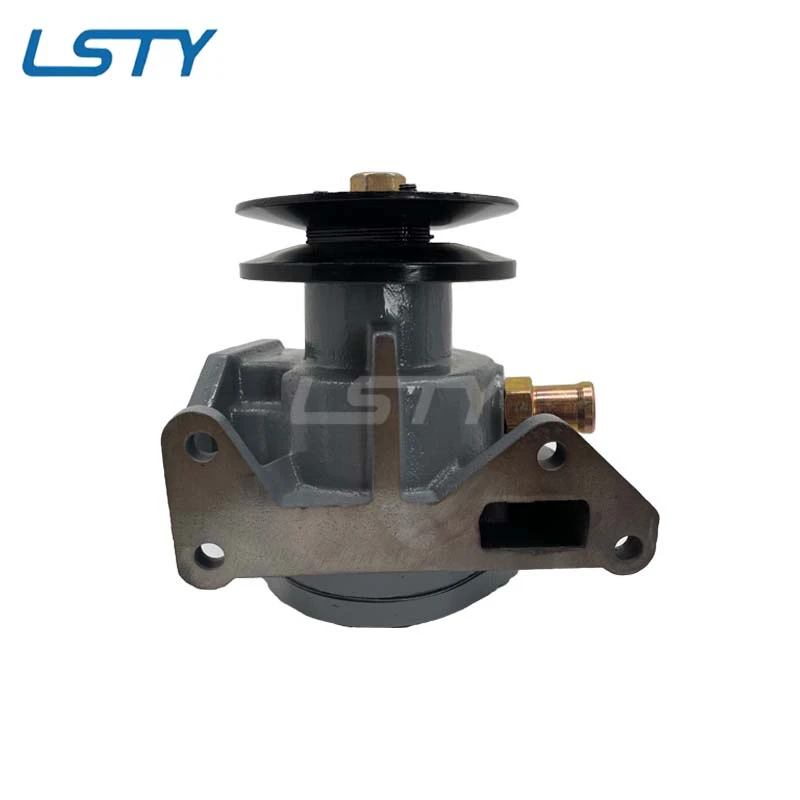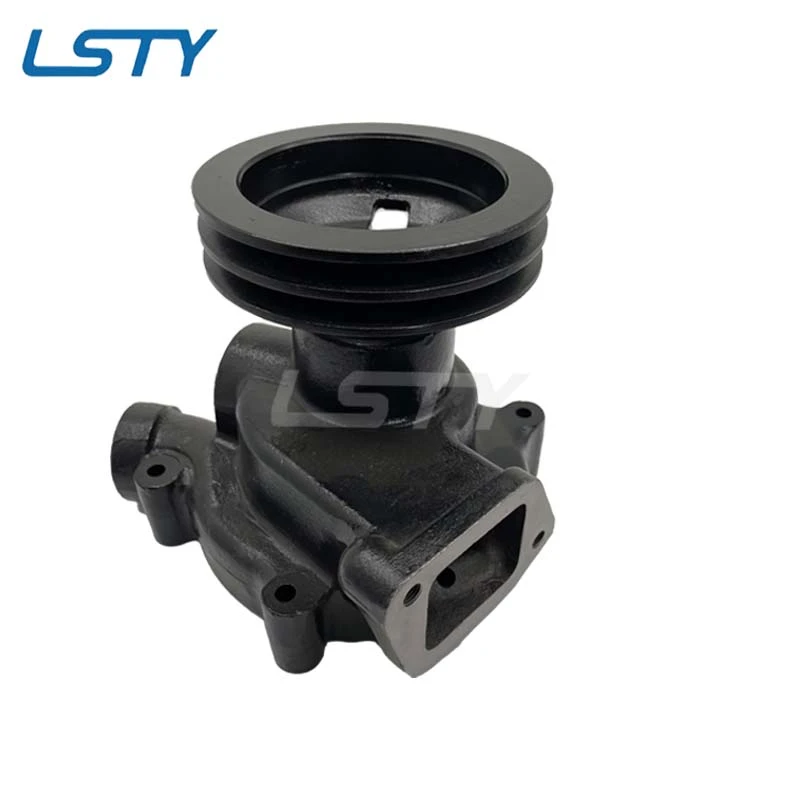The rhythmic hum of a well-tuned engine is music to any driver's ears. But when an intrusive whine, growl, or grinding noise emerges, often linked to the heart of your cooling system, it signals trouble. Engine cooling pump bearing noise is more than just an annoyance; it's a critical warning sign of impending failure that demands immediate attention. Ignoring it can lead to catastrophic engine damage and costly repairs. Understanding the root causes of this noise is the first step in protecting your engine's health and ensuring reliable performance. At HEBEI LONGSHENGTENGYU PUMP INDUSTRY CO., LTD (LSTY), with over two decades of expertise as a leading industrial water pump manufacturer and supplier, we've seen the consequences of bearing failure firsthand. We integrate R&D, manufacture, and dedicated service to provide solutions that prevent these issues at their source.
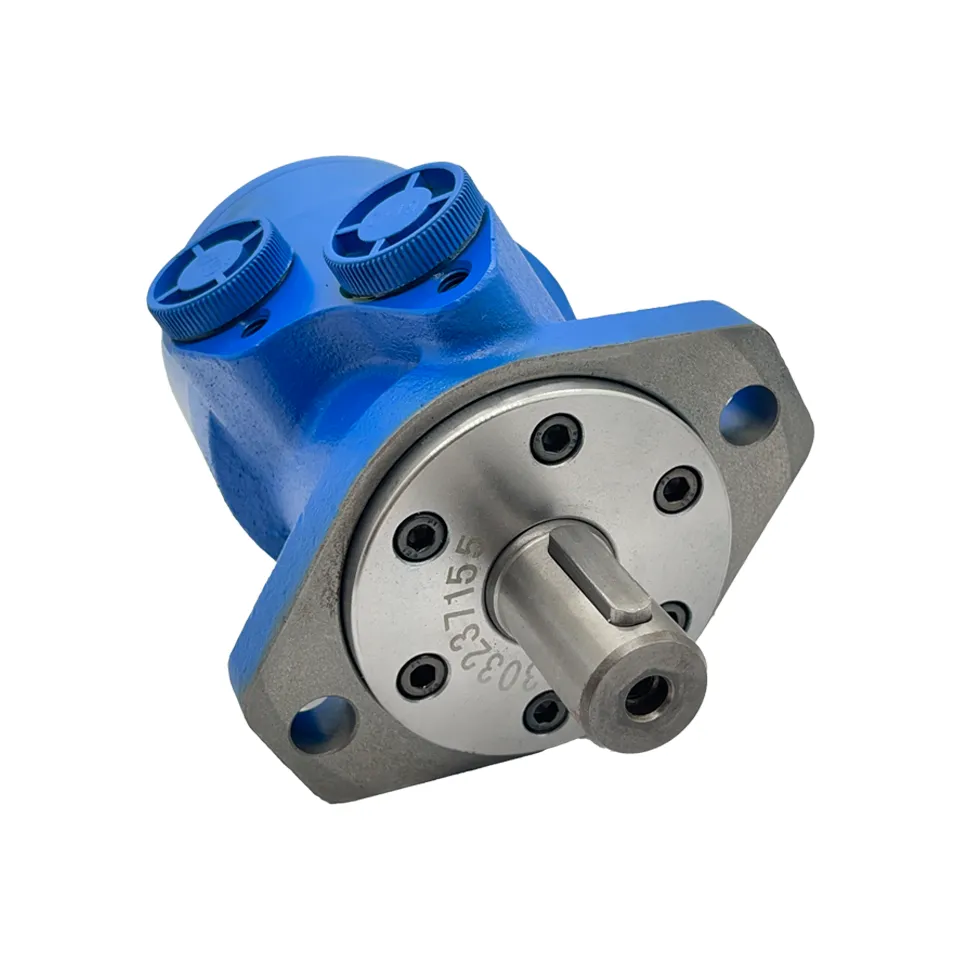
The Critical Role of the Engine Cooling Pump
Before diving into the noise, it's essential to grasp the vital function of the engine water pump. It's the relentless circulatory system of your engine. Driven typically by a belt connected to the crankshaft, the pump's impeller spins, creating centrifugal force. This force draws coolant (a mixture of water and antifreeze) from the radiator, pressurizes it, and propels it through the engine block and cylinder head. As the coolant flows through intricate passages, it absorbs immense heat generated by combustion and friction. The heated coolant then returns to the radiator, where airflow dissipates the heat before the cooled liquid cycles back through the pump again. This continuous loop maintains the engine within its optimal operating temperature range. Without this crucial heat transfer, engine components would rapidly overheat, seize, warp, or suffer irreparable damage. The car engine water pump is, quite literally, a lifeline for your engine.
The smooth operation of this pump hinges on a seemingly simple but critically important component: the bearings. These bearings support the pump shaft, allowing the impeller to spin freely at high speeds (often thousands of RPM) while withstanding significant radial and axial loads generated by the belt drive and coolant pressure. They operate in a demanding environment – exposed to heat, coolant (which can be chemically active), and potential contaminants. The integrity of these bearings is paramount to the pump's function and, by extension, the engine's survival.
Anatomy of an Engine Cooling Pump and Its Bearings
Understanding bearing noise requires a basic look inside the engine cooling pump. While designs vary, the core components are consistent:
Housing: Typically cast from aluminum or iron, it forms the pump body, containing the internal components and providing mounting points to the engine block. It also has inlet and outlet ports for coolant flow.
Shaft: A central spindle that rotates, driven by the pulley.
Impeller: Mounted on the shaft inside the housing, this is the rotating component with vanes that actually moves the coolant. Impellers can be made of metal (cast iron, stamped steel) or composite materials (plastic). Its design directly impacts flow efficiency.
Seal: Perhaps the most critical component besides the bearings. This mechanical seal prevents coolant from leaking out along the shaft while simultaneously stopping contaminants (like dirt and moisture) from entering the bearing cavity. A failed seal is a primary precursor to bearing failure.
Bearings: These are the workhorses enabling smooth rotation. Most modern car engine water pumps use either:
Ball Bearings: Common, handle radial loads well, generally quieter initially.
Tapered Roller Bearings: Often found in heavier-duty applications, handle combined radial and axial loads effectively.
Ceramic Hybrid Bearings: (Higher-end/LSTY Premium) Offer superior heat resistance, corrosion resistance, and longer life.
The bearings are pressed into the housing and support the shaft. They are packed with grease during manufacturing and rely on effective seals to retain this lubricant and exclude contaminants.
Pulley: Mounted on the outer end of the shaft, connected to the engine's drive belt (serpentine or V-belt). This transfers engine power to spin the pump.
The bearings operate within a sealed cavity. Their smooth, quiet rotation is entirely dependent on adequate lubrication (grease), protection from coolant and external contaminants (the seal), and the absence of excessive force or misalignment.
Unmasking the Culprits: Common Causes of Engine Water Pump Bearing Noise
When that tell-tale noise arises – a high-pitched whine, a low growl, a rhythmic chirping, or a harsh grinding – it's the bearings crying out. Here are the primary culprits:
Bearing Wear and Fatigue (The Natural Enemy): Like all mechanical components, bearings have a finite lifespan. Constant high-speed rotation, load cycles, and exposure to engine heat cause microscopic wear on the bearing races (tracks) and rolling elements (balls or rollers). Over tens of thousands of miles, this wear increases internal clearances. Loose components within the bearing create vibration and noise – often starting as a subtle whine that worsens to a rumble or growl as wear accelerates. This is the inevitable result of age and mileage.
Lubrication Failure (Starved for Grease): Bearings rely on their packed grease to reduce friction and dissipate heat. This grease can degrade over time due to:
Heat Breakdown: Extreme engine temperatures can "cook" the grease, breaking down its lubricating properties and turning it into a waxy sludge that doesn't flow.
Water/Coolant Contamination: This is the most destructive cause. If the pump's mechanical seal fails (even microscopically), coolant can leak into the bearing cavity. Water and glycol-based coolant are disastrous for bearing grease. They wash it away, dilute it, and cause it to emulsify (turn into a foamy, ineffective mixture). Without proper lubrication, metal-to-metal contact occurs rapidly, leading to intense friction, heat generation, accelerated wear, and loud grinding or screeching noises. Contamination can also come from external sources if seals are compromised.
Grease Leaching/Drying Out: Over very long periods, grease can separate or simply dry out, losing its effectiveness.
Contamination Ingress (The Gritty Truth): Even if coolant doesn't leak in, a failing front seal (pulley side) can allow external contaminants to enter the bearing cavity. Road dust, dirt, grit, and moisture are abrasive. Once inside, these particles act like sandpaper, scoring bearing surfaces, accelerating wear, and creating grinding or grating noises. Salt from winter roads is particularly corrosive and damaging.
Improper Installation or Handling Damage (The Preventable Cause): Bearings are precision components. If a pump is mishandled during shipping or installation (e.g., dropped, struck on the shaft, pulley overtightened), the bearings can suffer brinelling (indentations on the races) or other damage. This damage creates stress points and immediate noise upon startup. Incorrect belt tension (too tight) puts excessive side load on the bearings, dramatically shortening their lifespan and causing premature noise.
Corrosion (The Silent Aggressor): Especially prevalent in environments with high humidity, road salt, or if low-quality coolant is used (or not changed regularly), corrosion can attack the bearing surfaces. Rust pits create roughness, increase friction, accelerate wear, and lead to noise. Coolant contamination significantly accelerates corrosion within the bearing.
Cavitation (Indirect Noise Source): While not directly a bearing noise, severe cavitation (the formation and collapse of vapor bubbles in low-pressure areas of the pump) can cause significant vibration. This excessive vibration can be transmitted through the shaft to the bearings and housing, potentially contributing to bearing stress and noise over time, or masking as a bearing issue initially. Cavitation often sounds like gravel rattling inside the pump.
Diagnosing the Noise: The type of sound can offer clues:
High-Pitched Whine/Squeal: Often early-stage bearing wear or insufficient lubrication. Can sometimes be confused with belt noise (spraying water briefly on the belt can help differentiate – belt noise usually changes or stops).
Growling/Rumbling: Classic sign of advanced bearing wear or damage, often felt as vibration too.
Grinding/Grating: Indicates severe wear, metal-to-metal contact, or heavy contamination. Urgent!
Chirping/Squeaking: Can sometimes indicate a dry bearing (lack of grease) or very early seal failure allowing minimal contamination.
Consequences of Ignoring Car Engine Water Pump Bearing Noise
Ignoring the warning cries of your car engine water pump bearings is a gamble with high stakes:
Catastrophic Bearing Failure: The noise will inevitably worsen as damage progresses. Eventually, the bearing can seize completely. This halts the pump impeller instantly.
Shaft Breakage or Impeller Damage: A seized bearing puts immense stress on the pump shaft. The shaft can snap, or the impeller can shatter due to the sudden stoppage.
Coolant Leak Disaster: Bearing failure often coincides with, or causes, complete seal failure. This results in a massive coolant leak. Coolant pouring out rapidly leads to:
Engine Overheating: Within minutes, sometimes seconds, the engine temperature will skyrocket without coolant circulation. This is the critical danger.
Engine Damage: Severe overheating causes:
Warped Cylinder Heads: Compromises head gasket seal, leading to leaks between cylinders, oil passages, and coolant channels.
Blown Head Gasket: A common and expensive repair resulting from overheating pressure and warpage.
Cracked Engine Block or Cylinder Head: Extreme thermal stress can cause catastrophic cracks in the engine's main structure.
Piston Seizure: Pistons expand in overheated cylinders, welding themselves to the walls.
Valve Damage: Overheating can warp or burn valves.
Stranded Vehicle: A seized pump or catastrophic coolant leak will leave you stranded, requiring a tow.
Exponentially Higher Repair Costs: Replacing a noisy engine water pump proactively is relatively straightforward and affordable compared to the thousands of dollars required to repair or replace an engine damaged by overheating.
The LSTY Solution: Prevention Through Precision Engineering
At HEBEI LONGSENGTENGYU PUMP INDUSTRY CO., LTD (LSTY), we understand that bearing noise signifies a critical failure point. For 21 years, we've been committed to manufacturing engine cooling water pumps that prevent these issues from occurring, offering peace of mind and protecting your engine investment. Our philosophy is "think more than customers," anticipating failures before they happen. Here’s how we build reliability into every pump.
Premium Bearing Selection: We source high-grade bearings from reputable suppliers. For demanding applications and our premium lines, we utilize ceramic hybrid bearings renowned for their superior heat resistance, corrosion resistance, and extended service life compared to standard steel bearings. This directly combats the leading causes of wear and noise.
Advanced Seal Technology: The seal is the guardian of the bearing. LSTY employs state-of-the-art mechanical seals designed for maximum longevity and resilience against the harsh chemical and thermal environment of coolant systems. We rigorously test seals for leak integrity under extreme conditions.
Precision Manufacturing & Quality Control: Our manufacturing center operates under strict quality protocols. Components like shafts and housings are machined to exacting tolerances to ensure perfect bearing fit and alignment, eliminating stress points that cause premature noise and failure. Every pump undergoes stringent performance and leak testing before leaving our facility.
Optimal Grease Formulation: We use high-temperature, water-resistant greases specifically formulated for automotive water pump applications. This grease maintains its lubricating properties even under the hood's intense heat and provides a barrier against minor moisture ingress.
Robust Design & Materials: From durable castings for the housing to carefully engineered impellers that minimize cavitation risk, LSTY pumps are built for the long haul. We use materials resistant to corrosion and wear.
Integrated R&D: Our dedicated R&D team continuously analyzes field data and failure modes to innovate and improve our pump designs, bearing solutions, and seal technologies. We proactively address emerging challenges.
Our four well-managed centers – marketing, supply chain, manufacturing, and integration – work seamlessly to ensure this commitment to quality permeates every stage, from sourcing raw materials to delivering the final product to clients worldwide, including Russia, Belarus, Czech Republic, and the Middle East. We fight to make value-added products for our customers, considering their needs and interests as our own.
FAQs About LSTY Engine Cooling Pumps
What advantages do LSTY engine water pumps offer over standard pumps?
LSTY engine water pumps are engineered for superior reliability and longevity. Key advantages include the use of premium bearings (often ceramic hybrid for enhanced performance), advanced mechanical seals rigorously tested for leak prevention, high-temperature water-resistant grease, and precision manufacturing ensuring optimal component fit. This focus on critical components significantly reduces the risk of premature bearing noise, seal failure, and coolant leaks, ultimately protecting your engine from catastrophic overheating damage and saving you money on costly repairs and downtime.
How does LSTY ensure car engine water pump durability?
Durability in our car engine water pumps is built-in through multiple layers: 1) Premium Materials: High-grade castings, shafts, and corrosion-resistant components. 2) Critical Component Focus: High-performance bearings (standard or ceramic hybrid) and advanced seals specifically designed for the harsh engine environment. 3) Precision Engineering: Tight manufacturing tolerances ensure perfect bearing alignment and minimize stress. 4) Rigorous Testing: Every pump undergoes performance and leak testing before shipment. 5) Optimal Lubrication: Specialized grease formulated to withstand heat and resist washout. This multi-pronged approach directly targets the root causes of failure, ensuring extended service life and quiet operation.
Are LSTY engine cooling pumps more efficient?
Yes, LSTY engine cooling pumps are designed with efficiency in mind. We optimize impeller design to maximize coolant flow while minimizing power consumption required to drive the pump (reducing parasitic loss on the engine). Furthermore, our focus on minimizing internal friction through precision bearings and optimal lubrication contributes to overall operational efficiency. Efficient coolant flow is crucial for maintaining consistent engine temperatures, improving performance, and reducing the risk of overheating-related issues. Our designs aim for the optimal balance between flow rate, pressure, and energy usage.
Can LSTY supply engine water pumps for global vehicle models?
Absolutely. As a leading global manufacturer and supplier with over 21 years of experience, LSTY has a vast product range covering a wide spectrum of car engine water pumps and heavy-duty engine cooling water pumps for vehicles and machinery from numerous manufacturers worldwide. Our extensive catalog and capabilities in manufacturing, development, and moulding allow us to serve diverse markets including Russia, Belarus, Czech Republic, the Middle East, and beyond. If a specific application isn't immediately listed, our strong technical and sales teams can explore customized solutions to meet your exact requirements.
Why choose LSTY for my engine water pump needs?
Choosing LSTY means choosing a partner committed to reliability, value, and service. We offer: Assured Quality: Pumps built with premium components and strict quality control to prevent failures. Engineered Reliability: Focus on solving bearing noise and seal leakage at the source. Competitive Value: High-quality products at reasonable prices with favorable payment terms. Global Support: Extensive experience supplying international markets with reliable logistics. Customer Focus: We proactively "think more than customers," striving to exceed expectations and build long-term partnerships based on trust and delivering exceptional value. We look forward to working with you to protect your engines.
The unsettling noise emanating from your engine cooling pump is a clear distress signal. Bearing noise, primarily caused by wear, lubrication failure, contamination, or installation issues, is a harbinger of potential catastrophic failure leading to engine overheating and massive repair bills. Ignoring it is never an option.
Protecting your engine starts with choosing a water pump engineered for durability and silence. HEBEI LONGSHENGTENGYU PUMP INDUSTRY CO., LTD (LSTY) brings over two decades of dedicated expertise to this critical component. By focusing on the root causes – employing premium bearings, advanced seals, precision manufacturing, and optimal lubrication – we design and manufacture engine water pumps that deliver quiet, reliable performance and extended service life. Our commitment to quality control, continuous R&D, and customer-centric values ("think more than customers") ensures you get a product that safeguards your engine investment.
Don't wait for the whine to become a roar or the leak to become a flood. When it's time to replace your car engine water pump, choose the reliability and peace of mind offered by LSTY. Invest in silence, invest in protection, invest in engineering designed to keep your engine running cool and strong for the long haul. Contact us today to discover how LSTY can be your trusted partner for all your engine cooling needs.
-
Tandem Hydraulic Pump for Multi - Function SystemsTin tứcJul.16,2025
-
Selecting The Right Hydraulic Motor TypeTin tứcJul.16,2025
-
How Air Directional Control Valves Power Your Pneumatic WorldTin tứcJul.16,2025
-
Double-Ended Hydraulic Cylinder in Steel Rolling MillsTin tứcJul.16,2025
-
Design Optimization for Efficient Metal CastingsTin tứcJul.16,2025
-
Unveiling the Power and Precision of Hydraulic CylindersTin tứcJul.16,2025
-
The Critical Role of High Flow Hydraulic Motors in Modern ConstructionTin tứcJul.16,2025








